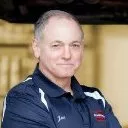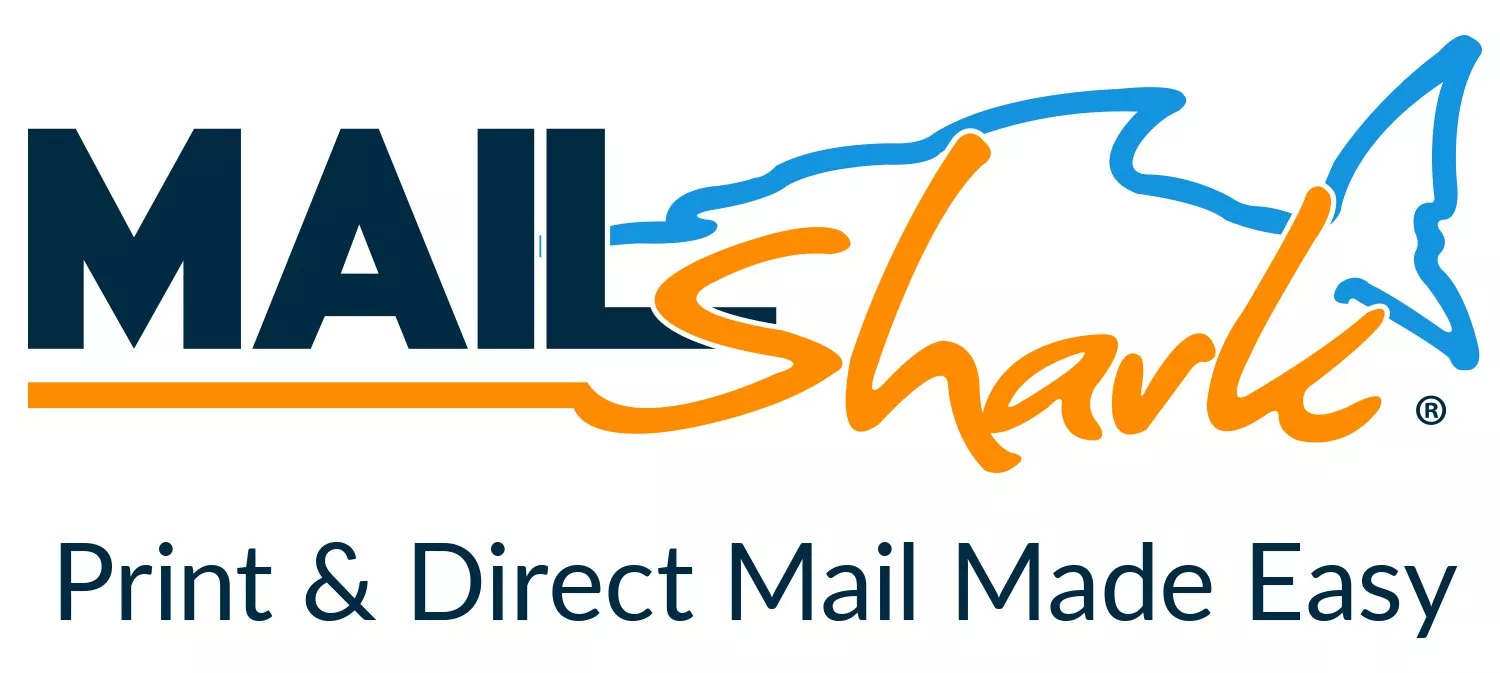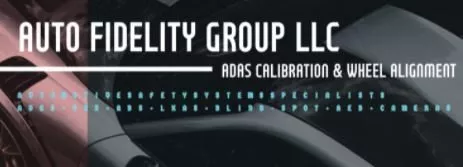Anybody own a collision/autobody shop?
-
Available Subscriptions
-
Have you checked out Joe's Latest Blog?
-
By Joe Marconi in Joe's Blog0 commentsIt always amazes me when I hear about a technician who quits one repair shop to go work at another shop for less money. I know you have heard of this too, and you’ve probably asked yourself, “Can this be true? And Why?” The answer rests within the culture of the company. More specifically, the boss, manager, or a toxic work environment literally pushed the technician out the door.
While money and benefits tend to attract people to a company, it won’t keep them there. When a technician begins to look over the fence for greener grass, that is usually a sign that something is wrong within the workplace. It also means that his or her heart is probably already gone. If the issue is not resolved, no amount of money will keep that technician for the long term. The heart is always the first to leave. The last thing that leaves is the technician’s toolbox.
Shop owners: Focus more on employee retention than acquisition. This is not to say that you should not be constantly recruiting. You should. What it does means is that once you hire someone, your job isn’t over, that’s when it begins. Get to know your technicians. Build strong relationships. Have frequent one-on-ones. Engage in meaningful conversation. Find what truly motivates your technicians. You may be surprised that while money is a motivator, it’s usually not the prime motivator.
One last thing; the cost of technician turnover can be financially devastating. It also affects shop morale. Do all you can to create a workplace where technicians feel they are respected, recognized, and know that their work contributes to the overall success of the company. This will lead to improved morale and team spirit. Remember, when you see a technician’s toolbox rolling out of the bay on its way to another shop, the heart was most likely gone long before that.
-
-
Similar Topics
-
By MikesPlaceAuto
Hello from Montana. Longtime mechanic/technician, first-time shop owner. Reaching out to many sources for information and advice. Small shop in rural setting, specializing in electrical and electronics. Thanks for any good words. Mike
-
By carmcapriotto
So, you didn’t go to school for HR, and let’s be honest, hiring probably wasn’t what you dreamed about when you opened your shop. But here you are, needing to fill those bays and build a solid team.
In this episode of the Auto Repair Marketing Podcast, Kim Walker is joined by Lisa Coyle of Promotive to break down what it takes to hire in today’s world, and spoiler alert: it’s all about marketing.
From writing job posts that work to building a reputation techs want to work for, they cover everything you didn’t know you needed to know. You’ll discover why speed is your best friend, how your everyday shop culture is part of your recruiting strategy, and why treating candidates like customers is the game-changer most shop owners miss.
Whether you’re hiring right now or just trying to build your bench, this episode is packed with smart advice, straight talk, and some seriously valuable insight into what works (and what doesn’t) when it comes to marketing your way to a great hire.
Hit play, and get ready to turn hiring from a headache into a strength. 👊
Thank you to our friends at RepairPal for providing you with this episode. RepairPal’s Certified Network of shops is trusted by millions of customers each month. Learn more at
RepairPal.com/shops.
AppFueled makes marketing easy. It’s a CRM designed for auto repair shops with tools like segmentation, reminders, and even a call center. Don’t wait—get started today at appfueled.com
Lagniappe (Books, Links, Other Podcasts, etc)
Promotive
Show Notes with Timestamps
Introduction to the Podcast (00:00:01) The podcast is introduced as part of the aftermarket radio network. Guest Introduction (00:00:10) Kim welcomes Lisa Coil from Pro Motive and expresses excitement about the discussion. Personal Anecdote on Hiring (00:01:22) Kim shares her first impression of Lisa at an industry event and their delayed connection. Marketing and Hiring Discussion (00:02:22) Kim highlights the importance of marketing in attracting both customers and future team members. Childhood Reflections on Blue-Collar Work (00:03:31) Kim reflects on societal views of blue-collar jobs and their financial misconceptions. Recruitment Challenges in the Industry (00:04:33) Discussion on the shortage of skilled blue-collar workers and the need for effective marketing strategies. Understanding Headhunters vs. Recruiters (00:05:23) Lisa explains the difference between headhunters and recruiters in the hiring process. Recruitment Process Overview (00:06:45) Lisa describes the comprehensive services provided by headhunters, from job design to candidate negotiation. Common Hiring Problems for Shops (00:09:13) Lisa outlines key challenges shops face, emphasizing the importance of branding and speed in hiring. Importance of Speed in Hiring (00:09:41) Lisa stresses the need for quick responses to applicants to secure top talent. Marketing's Role in Job Descriptions (00:12:10) Discussion on how marketing strategies influence job titles and descriptions to attract candidates. Optimizing Job Listings for Mobile (00:13:04) Lisa advises shop owners to check how their listings appear on mobile devices for better visibility. Balancing Job Specificity and Attractiveness (00:15:28) Lisa talks about the need to balance specificity in job titles without deterring potential applicants. Job Posting Strategies (00:18:28) Discussion on effective places for shops to post job openings. Candidate Treatment (00:18:39) Advice on treating job candidates like customers for better recruitment. Data Capture Importance (00:18:47) Emphasis on capturing candidate data for future recruitment needs. Using Job Boards (00:19:55) Recommendations on utilizing various job boards for recruitment. Applicant Tracking Systems (00:20:51) Benefits of using applicant tracking systems for managing job applications. Building a Candidate Database (00:21:53) The importance of maintaining a database of potential candidates over time. Social Media for Recruitment (00:22:46) Using social media ads for recruitment and the challenges involved. Referral Programs (00:23:43) Encouraging employee referrals as a strategy for finding candidates. Team Referral Incentives (00:25:27) Impact of financial incentives on employee referrals for job candidates. Maintaining Candidate Connections (00:25:50) Importance of staying in touch with candidates for future opportunities. LinkedIn for Hiring (00:27:15) Discussion on the effectiveness of LinkedIn for hiring technicians. Marketing's Impact on Hiring (00:28:01) How a shop's marketing affects their ability to attract good candidates. Consumer Reviews Influence (00:28:56) The role of online reviews in shaping potential candidates' perceptions. Showcasing Company Culture (00:30:27) The significance of showcasing company culture to attract talent. Careers Page Importance (00:32:55) Discussion on the essential elements of a careers page for attracting talent. Website for Customers and Employees (00:33:44) Lisa shares insights on designing websites for both consumers and potential employees. Showcasing Team Members (00:36:04) Importance of displaying employees on the website to attract future talent. Training and Retention Strategies (00:37:12) Discussion on the significance of training and retaining employees after hiring. Engagement During Transition (00:38:20) Keeping candidates engaged between signing the offer and starting their new role. Making First Days Special (00:40:10) Ideas for creating memorable first-day experiences for new hires. Responding to Negative Reviews (00:43:16) Advice on handling negative feedback and its impact on employer branding. Reputation Management (00:45:24) The importance of maintaining a positive reputation as an employer. Finding Pro Motive (00:48:28) Information on how to connect with Pro Motive for hiring assistance. Closing Remarks (00:49:14) Wrap-up of the episode and encouragement to listen to future shows.
How To Get In Touch
Join The Auto Repair Marketing Mastermind Group on Facebook
Meet The Pros
Follow SMP on Facebook
Follow SMP on Instagram
Get The Ultimate Guide to Auto Repair Shop Marketing Book
Email Us Podcast Questions or Topics
Click to go to the Podcast on Remarkable Results Radio
-
By nptrb
Premium Member Content
This content is hidden to guests, one of the benefits of a paid membership. Please login or register to view this content.
-
By stevefry
I have a client looking to sell their Auto Body Shop in Monteagle TN called Lakeside Collision. He is asking $1,500,000 and the property did a little over $1,200,000 last year. Profitable business with lots of equipment and inventory, newer paint booth and includes 2 lots and 2 buildings with 8 bay doors.
Also have another client looking for an Auto Body business to purchase in Davidson County (Nashville) TN. Looking for a shop with the business and the real estate.
-
-
By carmcapriotto
In this episode, we’re diving into the powerful concept of creating a shared vision and how a lack of clarity could be holding your shop back from real growth.
I’ll walk you through what I learned in a deep dive after my own leadership team challenged me to cast a vision that reaches every level of our company. We’ll talk about how to get out of the “small thinking” trap, how to define your goals with laser precision, and why your employees need to see, feel, and believe in the same future you do.
Plus, I’ll share real tools, like how to craft your vision statement, how to communicate it across your team, and how to create a business where everyone’s pulling in the same direction.
If you want to stop playing small and start building something truly great, this episode is for you.
Thank you to our friends at RepairPal for providing you this episode. RepairPal will help you grow your auto business and you can learn more at RepairPal.com/shops.
Declined repairs don’t have to be lost revenue. AppFueled’s call center schedules follow-up calls and equips your team with everything they need to close the deal. Get started now at appfueled.com
Lagniappe (Books, Links, Other Podcasts, etc)
EOS One
Vivid Vision: A Remarkable Tool For Aligning Your Business Around a Shared Vision of the Future - Cameron Herold
The Vision Driven Leader - Michael Hyatt
Stop Delaying Your Dreams: Time to Take Action
Show Notes with Timestamps
Introduction and Sponsors (00:00:01) Overview of the podcast and thanks to sponsors RepairPal and App Fuel. Creating a Shared Vision (00:00:10) Brian discusses the importance of establishing a shared vision for the company. Leadership Team Meetings (00:01:13) Details about offsite leadership meetings and the exercise called "the one thing." Feedback and Growth (00:02:08) Brian reflects on receiving feedback from his leadership team and its impact on personal growth. Shifting Mindset on Growth (00:03:07) Brian shares his fears about growth and how he overcame them to embrace larger ambitions. Disney's Service Model (00:04:17) Comparison of Disney's customer service model to his company's approach to client service. Processes and Procedures (00:05:26) Discussion on the importance of processes in maintaining service quality while growing. Inbound Marketing Strategy (00:07:25) Brian explains the effectiveness of inbound marketing in attracting clients. Outbound Sales Shift (00:09:26) Introduction of outbound sales strategies and the team's initial reactions to the change. Creating a Shared Vision Deep Dive (00:10:34) Brian's focus on developing a shared vision after receiving feedback from his leadership team. Researching Shared Vision (00:11:42) Challenges in finding resources on creating a shared vision and discovering related literature. Book Recommendations (00:12:42) Brian reviews two books on vision creation and his thoughts on their content. Simplicity of Creating Vision (00:13:34) Brian concludes that creating a shared vision is simpler than expected, emphasizing clarity. Vision, Mission, and Values Explained (00:14:45) Brian differentiates between vision, mission, and values with a practical example. Big Dreams and Ambitions (00:15:45) Brian discusses the importance of dreaming big and outlines a fictional company's ambitious goals. Vision, Mission, and Values (00:16:48) He explains the significance of having a clear vision, mission, and values for a successful organization. Sponsor Message: RepairPal (00:17:48) Introduction to RepairPal and its services that help auto repair shops attract tech-savvy customers. Sponsor Message: App Fuel (00:18:48) Overview of App Fuel's customer loyalty app designed for auto service shops to enhance customer retention. Core Values and Their Importance (00:19:57) Brian shares his realization of the value of core values in decision-making and company culture. Litmus Testing New Hires (00:20:59) He describes how to evaluate potential hires against the company's vision, mission, and values. Understanding What You Want (00:21:55) Brian emphasizes the importance of defining personal and business desires beyond just financial goals. Creating a Clear Vision (00:23:51) Discussion on the necessity of a detailed, clear vision for a business to guide its direction. Proximity to Your Dreams (00:26:56) Encouragement to immerse oneself in environments that inspire and reflect personal dreams and aspirations. Crafting Your Vision (00:28:50) Brian advises on the process of creating a vision, emphasizing the need for time and space away from routine. The Importance of a Clear Direction (00:29:46) He compares running a business without a clear vision to aimlessly shooting an arrow, highlighting the risks involved. Creating a Target (00:30:41) Discusses the importance of having a detailed vision as a target for business goals. Vision Details (00:31:37) Explains the components of a business vision, including specifics about services and operational metrics. Dream Big (00:34:25) Encourages thinking big without worrying about how to achieve those goals initially. Historical Example: JFK (00:35:32) Uses JFK's moon landing vision as an example of effective goal-setting and inspiring leadership. Sharing the Vision (00:37:33) Stresses the need to communicate the vision clearly to the entire team for buy-in. Selling Down the Ladder (00:38:27) Describes the process of sharing the vision, starting with leadership and moving downwards. Feedback and Buy-In (00:39:19) Highlights the importance of receiving feedback and fostering genuine buy-in from team members. Repetition of Vision (00:40:12) Discusses the necessity of repeatedly communicating the vision to ensure team alignment. Crafting the Vision (00:42:20) Brian reflects on his personal goal to create a detailed vision for his organization. Importance of Shared Vision (00:43:34) Concludes with the significance of a shared vision for team alignment and achieving business goals.
How To Get In Touch
Join The Auto Repair Marketing Mastermind Group on Facebook
Meet The Pros
Follow SMP on Facebook
Follow SMP on Instagram
Get The Ultimate Guide to Auto Repair Shop Marketing Book
Email Us Podcast Questions or Topics
Thanks to our Partners,
RepairPal at https://repairpal.com/shops. Quality Car Repair. Fair Price Guarantee.
App Fueled at appfueled.com. “Are you ready to convert clients to members? AppFueled™ specializes in creating custom apps tailored specifically for auto repair businesses. Build your first app like a pro.”
Aftermarket Radio Network
Remarkable Results Radio Podcast with Carm Capriotto: Advancing the Aftermarket by Facilitating Wisdom Through Story Telling and Open Discussion
Diagnosing the Aftermarket A to Z with Matt Fanslow: From Diagnostics to Metallica and Mental Health, Matt Fanslow is Lifting the Hood on Life.
The Weekly Blitz with Chris Cotton: Weekly Inspiration with Business Coach Chris Cotton from AutoFix - Auto Shop Coaching.
Speak Up! Effective Communication with Craig O'Neill: Develop Interpersonal and Professional Communication Skills when Speaking to Audiences of Any Size.
Business by the Numbers with Hunt Demarest: Understand the Numbers of Your Business with CPA Hunt Demarest.
The Auto Repair Marketing Podcast with Kim and Brian Walker: Marketing Experts Brian & Kim Walker Work with Shop Owners to Take it to the Next Level.
Click to go to the Podcast on Remarkable Results Radio
-
-
-
Our Sponsors

















Recommended Posts
Create an account or sign in to comment
You need to be a member in order to leave a comment
Create an account
Sign up for a new account in our community. It's easy!
Register a new accountSign in
Already have an account? Sign in here.
Sign In Now